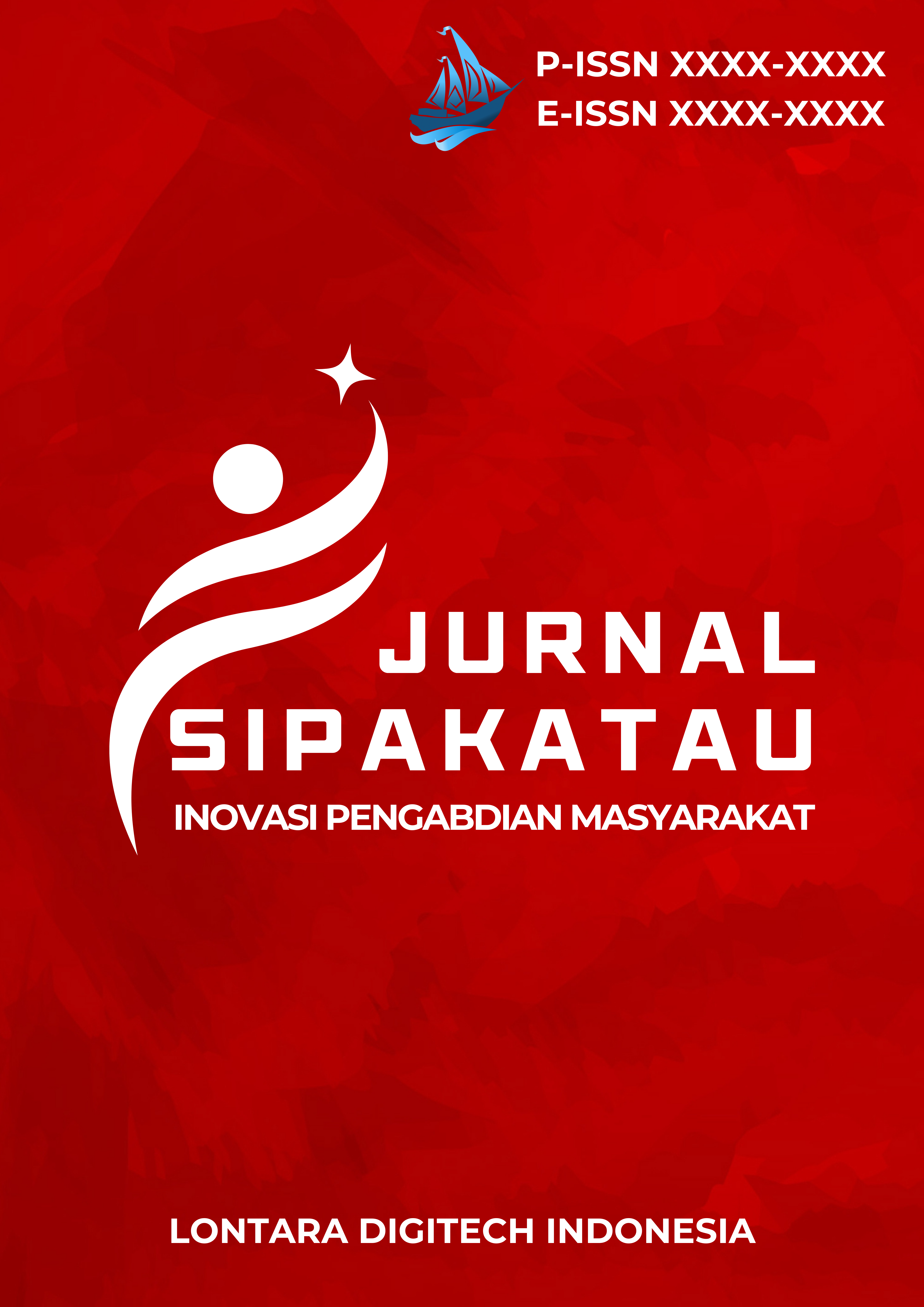Translating Local Literature into English: A Workshop on Literary Translation for University Students
DOI:
https://doi.org/10.61220/jsipakatau.v2i4.2520Keywords:
literary translation, community-based learning, cultural preservation, intercultural understanding, student engagementAbstract
This community service project aimed to develop students’ translation competence while contributing to the preservation and internationalization of local literature. Implemented at Universitas 17 Agustus 1945 Banyuwangi, the project involved 26 English Language students in a three-month experiential program titled “Translating Local Literature into English.” The activities consisted of a translation workshop, fieldwork in Kemiren Village—a center of Osing culture—and the compilation of bilingual manuscripts. Students were trained in literary translation theory and techniques, then conducted field-based data collection, interviewing local elders and documenting oral texts. These texts were translated collaboratively, with the final outputs compiled into a bilingual anthology entitled “Echoes of Osing.”Survey results showed a significant increase in students’ translation skills and cultural awareness, with over 90% indicating improved confidence and understanding. The project also strengthened university–community engagement by positioning cultural stakeholders as co-educators in the translation process. The field immersion allowed students to appreciate the sociocultural context of Osing literature and provided real-world insights into the complexities of language transfer. The bilingual anthology and accompanying video documentation were disseminated through both print and digital platforms, expanding access to regional Indonesian literature for global audiences. This program demonstrates that student-led literary translation can be a powerful medium for cultural preservation, academic skill-building, and grassroots cultural diplomacy. It highlights the potential of integrating community-based learning with academic programs, offering a sustainable and replicable model for universities aiming to link global engagement with local knowledge. The project also contributes to preserving linguistic diversity and promoting intercultural understanding through education.
References
Anderson, M., & Toh, W. (2020). Cultural translation in language education. Journal of Intercultural Studies, 41(5), 623–639.
Anderson, T., & Al-Khalifa, H. S. (2020). Translation as cultural activism: Documenting indigenous identities through student projects. Translation and Society, 1(2), 157–175.
Anindita, R., & Kurniawan, B. (2023). Integrating local literature and service learning: A framework for engaged translation education.Jurnal Pendidikan Bahasa dan Sastra Indonesia, 28(2), 178–191.
Boyer, E. L. (2016). The scholarship of engagement: Redefining the role of the university in society. Journal of Higher Education Outreach and Engagement, 20(2), 21–32.
Budianta, M. (2019). Cultural literacy and the ethics of local knowledge translation. Humaniora, 31(3), 252–263.
Hartati, T., & Mustofa, M. (2020). Implementing local content in higher education curriculum to promote cultural identity. Jurnal Pendidikan Humaniora, 8(1), 32–40.
Hasibuan, R. (2021). Penerjemahan sastra berbasis teknologi digital dalam pendidikan tinggi. Jurnal Bahasa dan Sastra, 18(2), 155–167.
Haryanto, D., & Lestari, S. (2021). University-community collaboration in preserving intangible cultural heritage. Jurnal Pengabdian kepada Masyarakat, 6(1), 11–22.
Nuraini, L. (2019). Translation as cultural conservation in multilingual Indonesia. Indonesian Journal of Language and Culture, 6(1), 20–30.
Nye, J. S. (2017). Soft power: The means to success in world politics. New York: PublicAffairs.
Purnamasari, E. (2022). Revitalisasi sastra Osing di Banyuwangi melalui penerjemahan. Jurnal Sastra Daerah, 3(1), 45–56.
Putri, D. A., & Nugroho, S. (2021). Strategi internasionalisasi budaya melalui penerjemahan sastra lokal. Jurnal Ilmu Budaya, 9(1), 12–25.
Rahmawati, N. (2023). Model pengabdian masyarakat berbasis penerjemahan sastra. Jurnal Literasi dan Budaya, 5(3), 105–115.
Setiawan, A., & Marlina, R. (2022). Promoting intercultural literacy through regional literature translation. Journal of Language and Intercultural Education, 5(2), 115–128.
Siregar, H., & Wulandari, Y. (2021). Pelatihan penerjemahan sastra bagi mahasiswa. Jurnal Pendidikan Bahasa, 19(4), 255–267.
Suharto, R., & Chandra, A. (2018). Local literature in global classrooms: Repositioning regional texts through translation. Jurnal Sastra dan Budaya, 13(1), 44–56.
UNESCO. (2019). Education and cultural sustainability: Recommendations for future curricula. Paris: UNESCO Education Sector.
UNESCO. (2019). The importance of translating local literature for cultural preservation. Paris: UNESCO Publishing.
Wahyuni, S., & Prasetyo, M. E. (2023). Strategi kampus dalam penguatan literasi budaya melalui program penerjemahan mahasiswa. Jurnal Pendidikan Bahasa dan Sastra, 21(2), 141–153.
Widodo, H. P. (2020). De-centering English in ELT: Translation, decolonization, and critical pedagogy. Indonesian Journal of Applied Linguistics, 10(1), 1–10.
Wijayanti, M. (2024). Membangun sistem pendidikan penerjemahan sastra berkelanjutan. Jurnal Abdimas Edukasi, 8(1), 34–47.
Yuliana, T., & Saputra, R. (2020). Community engagement in translation education. Jurnal Pendidikan dan Kebudayaan, 25(3), 312–320.
Downloads
Published
Citation
Issue
Section
License
Copyright (c) 2025 Hendra Sudarso, Yulian Purnama, Siswandi (Author)

This work is licensed under a Creative Commons Attribution-ShareAlike 4.0 International License.
















 Email: sipakatau@lontaradigitech.com
Email: sipakatau@lontaradigitech.com
